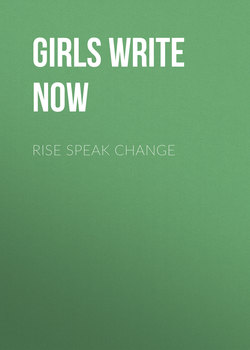Читать книгу Rise Speak Change - Girls Write Now - Страница 20
На сайте Литреса книга снята с продажи.
ОглавлениеSix Decades of Protest, 1964–
LINDA CORMAN
Soledad’s reflections on her experiences demonstrating for various causes made me think back about my own experiences, and the related interactions with police.
What were the police thinking
When the busloads of white, suburban kids spilled
Onto the grounds of the
School building, its crumbling, scarred brick façade draped with “Freedom Boycott” hand-painted in black on a white sheet
Windows covered in heavy iron bars (or was it broken chicken wire?)
Perhaps some boarded up where stones had sailed through the glass
(We were told to take advantage of the bathroom stop at Howard Johnson’s on our way into town; no telling whether the toilets at the school worked)
I, at 13, in pleated skirt and round-collared blouse, proud to skip school and join, at our mother’s urging, the protest against “De-facto Segregation” and the decrepit schools to which Boston’s black children were consigned; my brother, a few years older, chafing under parental tutelage, but clasping a dog-eared copy of Another Country.
What were the police told to do that day?
Were they told to “protect” us do-gooders from the black kids, parents, ministers, principals
Who we joined on the barren hillside sloping down from the school to sing “We Shall Overcome”?
Or, were they there to protect white Boston from us?
Did they curse us under their breaths, “Nigger Lovers”?
Or, did they look on, taciturn, and then go home to their neighborhoods, and their only slightly better-kept schools
And vote for Louise Day Hicks?
****
Seven years later, in Harvard Square, my brother,
Raging against the war (Vietnam)
High on something
Skinny, angry, dirty, hair flamboyant, Medusa-like
“Hippy scum.”
“Lock him up.”
Did they finally get to unleash their fury at the privileged, white suburban kid?
***
At JFK, after the Muslim ban
Police—at least one for every 20 protestor—machine guns dangling from their belts
Corralled us into a triangle of concrete near a parking garage
Marginalized, shunted aside, hidden from most of the waves of passengers entering and leaving the international terminal
We chanted, “Immigrants Are Welcome Here” and “Remember the St. Louis.”
As I left, chilled, new waves of protesters arrived. I glanced up at a few young officers at the end of a gauntlet on either side of a sidewalk they were “keeping clear for passengers.”
“Someday soon, you’re going to have to decide what side you’re on,” I remarked, counting on age, as well as whiteness, to protect me from immediate danger.
